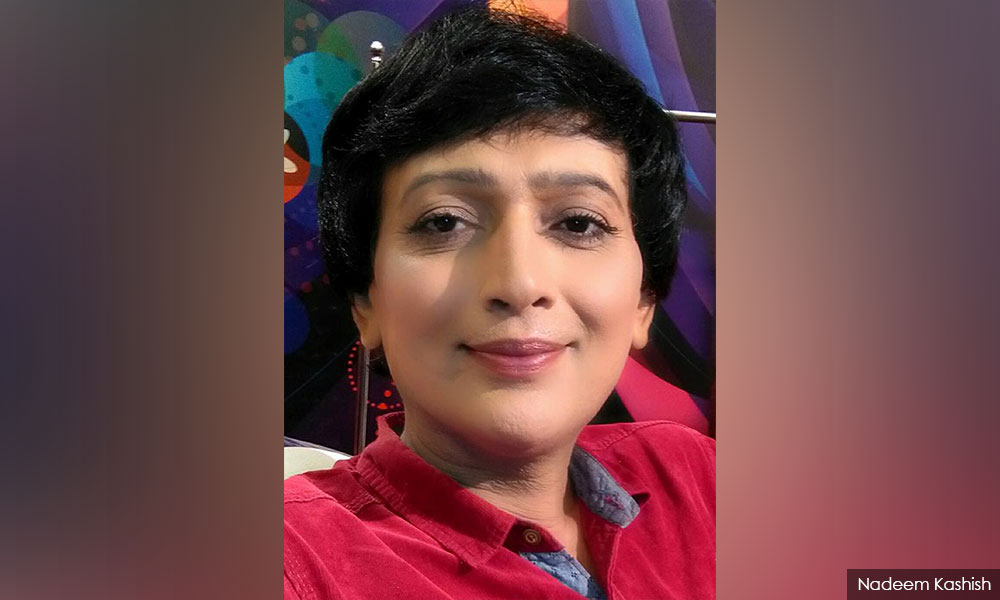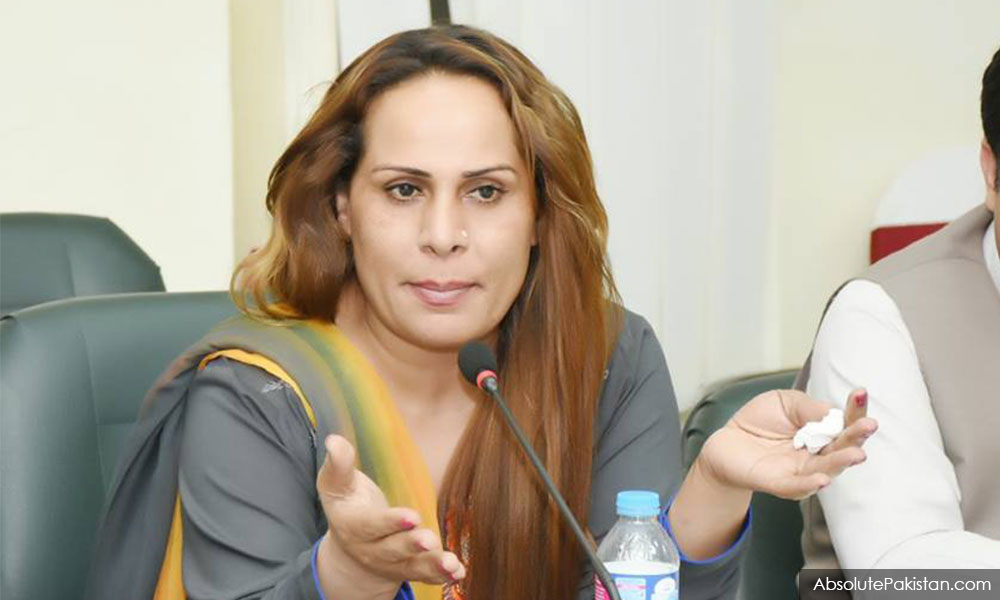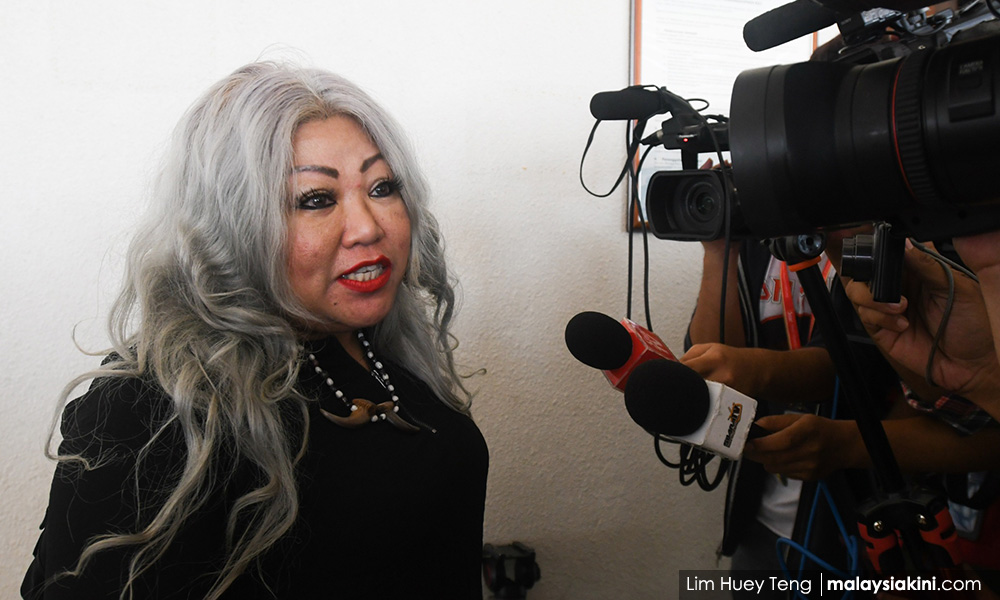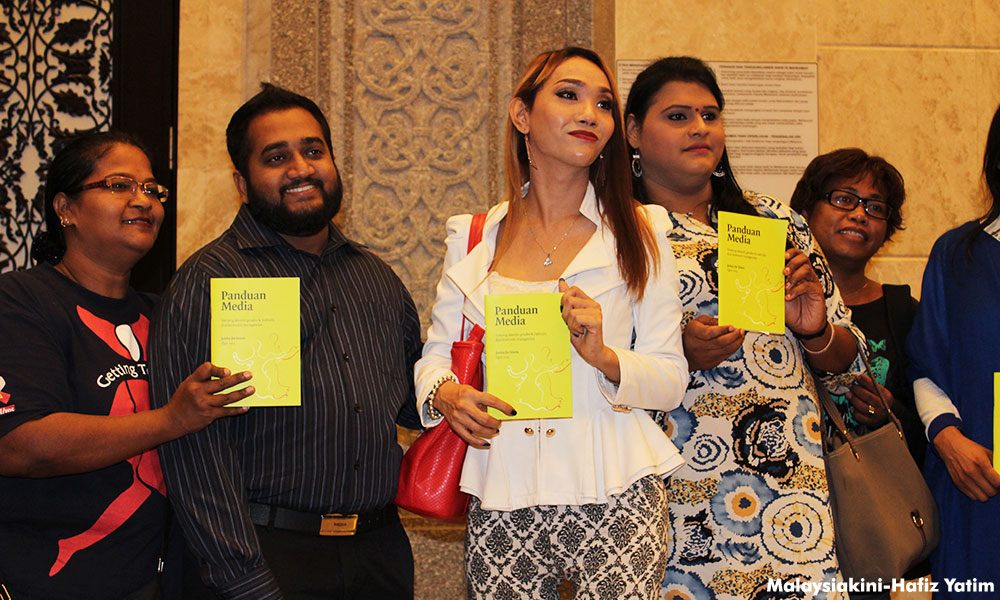COMMENT | A gender revolution is underway in the unlikeliest of places – Pakistan. As Pakistanis turned out to vote in large numbers on Wednesday for their next prime minister, 13 transgender persons have stepped forward to stand as candidates and contest for seats.
It has been energising and enervating to witness an extremely marginalised community being able to participate in politics and seek a seat to represent people’s needs in the legislative arm of the government.
In fact, Nadeem Kashish (photo), a 35-year-old trans-woman is running against ex-cricket legend Imran Khan and ex-prime minister Shahid Khaqan Abbasi in the bid for the Islamabad seat in the national assembly.
How did Pakistan get to this point?
In 2009, a Supreme Court ruling stated that there would be a third sex option in the national identity card registration system, and that transgender persons could obtain national identity cards with this option.

Since then, the courts have been ruling in greater recognition and in protection of transgender rights with regards to the right to vote, right to inheritance and to own assets, and a right to be counted as a separate category in the population census.
In June 2017, Farzana Riaz, became the first transgender person to be issued a passport with the third sex – “X” – as the gender marker.

On May 9 this year, Pakistan’s parliament passed the landmark Transgender Persons (Protection of Rights) Act. This act recognises citizens’ right to self-identify as male, female or a blend of both genders. Moreover, this act also enables citizens to have this identity to be registered on all official documents, including passports, National Identity Cards, drivers’ licences and educational certificates.
The act defines that citizens have a right to a gender identity of their choosing –gender being “a person's innermost and individual sense of self as male, female or a blend of both, or neither; that can correspond or not to the sex assigned at birth,” and that citizens have the right to express their gender identity.
Marginalisation in Malaysia
Though Pakistan is an Islamic republic, it seems to have made some strides at least with regards to transgender rights.
In Malaysia, on the other hand, the Federal Court in 2015 overturned a judgement by the Court of Appeal, which had ruled that the syariah law on anti-cross dressing was “unconstitutional”.
The Federal Court judgement said that the Court of Appeal had no jurisdiction to rule on the matter, and that the transgender persons, who were Muslims, were subject to syariah laws and their recourse lay within the syariah system.
Furthermore, it said that transgender persons in Malaysia, within syariah, are subject to laws on cross-dressing or “posing as the other gender” (and in some states described derogatorily as “pondan”) and are subject to fines and imprisonment of a maximum of RM5,000 and three years respectively.
Events that transgender persons participate in are also subject to raids by Islamic authorities in Malaysia. The Malaysian courts are still in the process of hearing a case where civil rights lawyer, Siti Kasim (photo), is being charged with obstructing Federal Territories Islamic Religious Department (Jawi) officers from raiding a transgender beauty pageant.

Examples like Pakistan help shed light that the Muslim world is not uniform in its approach to the Lesbian, Gay, Bisexual and Transgender (LGBT) agenda. Traditionally, transgender persons have always been part of our communities in Asia.
In Pakistan, where they are called hijra, they are often invited to sing and dance and shower newly-married couples with blessings – akin to other South Asian countries. In Malaysia, they have also played traditional roles in weddings such as Mak Andams. Interestingly enough, perspectives and regulations that tightly defined, regulated and controlled sexuality were brought in with the British colonial rule.
Malaysia seems to have pursued almost an opposite course to Pakistan, where the judiciary has returned time and time again judgments which seem to further marginalise the trans community and strip them of their constitutional rights to even the most basic services: A right to health, a right to jobs, and a right to free movement.

Moreover, in most of these cases, the secular, civil courts have chosen to give way to the religious courts, though religious courts should not have a purview over rights to health, jobs, and free movement. Religious courts were initially meant only to rule on matters pertaining to family law (matters pertaining to marriage, divorce, inheritance) as per customary traditions in almost all postcolonial societies.
A historic bill
The Pakistan bill is particularly historic. In most countries, sex is assigned at birth, usually by a physician or a midwife who delivers the baby.
More often than not, sex reassignment is an arduous journey and in some Islamic countries there needs to be approval from religious authorities on the legitimacy of the claim to reassign one’s sex. In some countries, such as the UK, one has to be diagnosed with gender dysphoria and undergo a waiting period, before being reassigned.
Hence the recognition of the right to self-identify is a huge step, which does away with convoluted processes and approvals, which seem to work to restrict gender and sexual expression.
This is a key step that countries need to take in order to create more inclusive societies. The transgender community has been long discriminated against in education, employment, housing, and inheritance. The transgender community also experiences high levels of violence, which goes unrecognised and unaddressed. Transgender persons are typically disowned by their families and thrown out of the family homes. Many end up as beggars or sex workers, as opportunities are severely limited.
Transgender persons have no recourse to justice when their rights are violated. Laws such as the one Pakistan has recently passed help the marginalised community gain access to opportunities and claim their rights.
Bringing the periphery to the centre should be focus of all governments touting the United Nations’ Sustainable Development Goals, and its vow to leave no one behind. This includes the trans community. And if Pakistan can do it – why not the rest of us?
SIVANANTHI THANENTHIRAN is the executive director of the Asian Pacific Resource and Research Centre for Women (ARROW). She has co-authored “Reclaiming & Redefining Rights: The Status of Sexual and Reproductive Health and Rights in Asia and the Pacific” in 2009 and 2013. She has presented papers on sexual and reproductive health and rights at the UN in Bangkok and New York.
The views expressed here are those of the author/contributor and do not necessarily represent the views of Malaysiakini.

